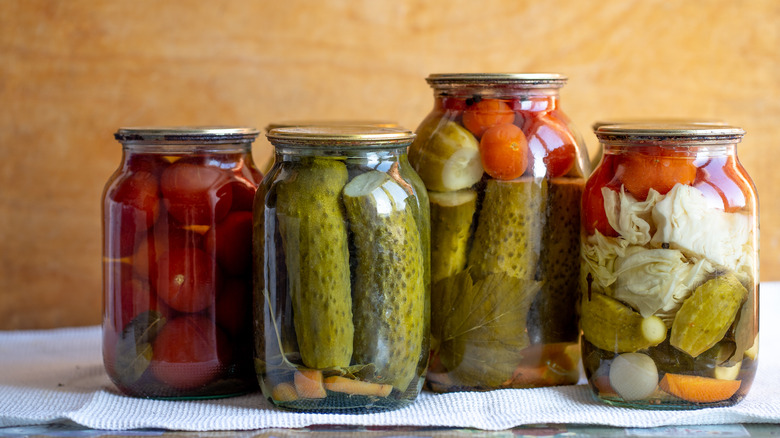Causes Of Stomach Cancer You Might Not Know About
When the topic of what causes stomach cancer comes up, what is often discussed are the risk factors that predispose someone to get the fifth most common type of cancer in the world — like age (being over 60), sex (male), and a family history of the disease. Being overweight, using alcohol, smoking, and having previous stomach surgery also increase the risk.
While the actual cause of stomach cancer remains elusive to science, something you might know about the disease is its association with a bacteria called Helicobacter pylori, or H. pylori. Infection with H. pylori significantly increases your chances of developing stomach cancer. An H. pylori infection damages your stomach tissues and causes inflammation that can lead to ulcers and in some cases, gastric cancer.
According to University of Colorado Cancer Center member and assistant professor of medical oncology in the CU School of Medicine Dr. Sunnie Kim, the incidence of H. pylori is much lower in more developed countries. This could explain why stomach cancer cases are on the decline in the U.S. "This bacteria is a significant risk factor in stomach cancer, and it's still prevalent in developing countries, where sanitation and clean water is still lacking," shared the expert.
On the topic of geographical significance, being native to East Asia, Eastern Europe, and South and Central America is also considered a risk factor. Stomach cancer is more common in these countries, but less common in Africa and North America.
Other lesser-known factors associated with stomach cancer
What you put in your body via your diet has a significant impact on your sleep, energy levels, and overall health. Turns out, stomach cancer could also be related to poor dietary choices. Consuming large amounts of pickled, salted, or smoked food; eating processed, grilled, or barbecued meat; and not eating enough fruits (particularly citrus fruits) and vegetables have all been linked with gastric cancer incidence.
Per a 2022 study published in Nutrients, excessive salt intake could promote H. pylori colonization in your stomach. Too much salt can also irritate your stomach lining and lead to lesions and ultimately, stomach cancer. According to the Science Programme Manager (Research Interpretation) at World Cancer Research Fund International, Stephanie Fay, research related to foods preserved in salt and the prevalence of stomach cancer has so far been focused on Asia, particularly Japan and Korea. "This is because many of the traditional foods in these countries are preserved by salting and fermentation, rather than by refrigeration as in many countries in the West," explained Fay. The research pertaining to smoked meat consumption and gastric cancer (and even other forms of cancer) has been ongoing since the 1960s, per Slate.
Moving away from diet, what you might not know about gastric cancer is that it's also linked with exposure to asbestos and working in the coal, metal, and rubber industries. Dusty and high-temperature environments are also thought to be associations.
Risk factors aside, it is important to be aware of the sneaky signs of stomach cancer you shouldn't ignore — like indigestion, stomach pain, tar-like poop, and unexplained weight loss. If you experience this set of symptoms, it's a good idea to get checked out by a doctor.


